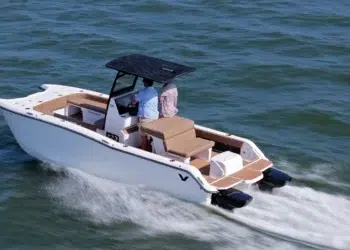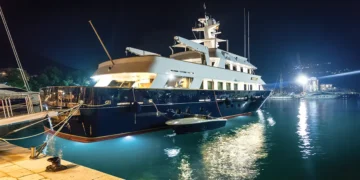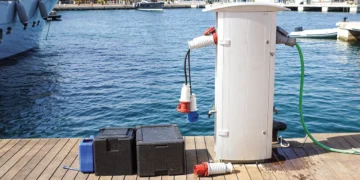A guide to responsible mariner practices
Boating is an exciting activity that lets us connect with nature, explore new horizons, and enjoy the thrill of the open water. Yet, like any adventure, it comes with responsibilities. Understanding and practicing proper boating safety and etiquette not only enhances your own experience but also promises that everyone on the water has a great time.
Essential Boating Safety
Before embarking on your journey, make sure your boat is equipped with all necessary safety equipment. This includes life jackets for every passenger, flares for signaling, a fire extinguisher, and a comprehensive first aid kit. Regularly check that all safety gear is in good working order and familiarize yourself with how to use each item in an emergency.
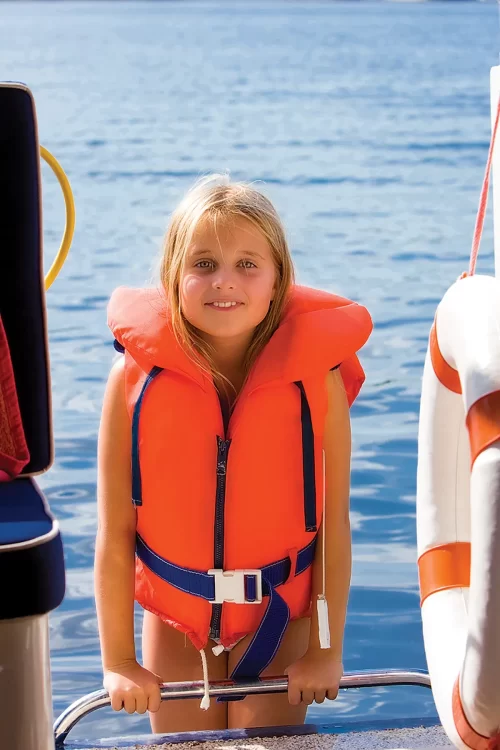
You should also conduct a detailed inspection of your boat before leaving the dock. Examine the boat’s engine, electrical systems, and fuel levels. Ensure that navigation lights, the horn, and the bilge pump are functioning properly. In addition, stay updated on weather forecasts and water conditions to avoid dangerous situations.
Adhering to navigation rules is critical for safety as well. Understand right-of-way rules and always maintain a vigilant lookout. Respecting these guidelines helps prevent accidents and guarantees a safe environment for everyone on the water.
Subscribe Here For More Boating Content
Marina Etiquette: Docking and Behavior
When entering a marina, slow down and approach your docking area with caution. Marinas can be busy, so reduce your speed to navigate safely. Pay attention to the signage and follow the marina’s specific docking instructions.
Docking space is often limited, so it’s important to be considerate and mindful of your surroundings. Dock your boat as close to the center of your assigned space as possible and avoid encroaching on neighboring boats. Position your boat’s lines and fenders properly to prevent interference with other vessels as well as keeping docks clear to avoid trips and falls.
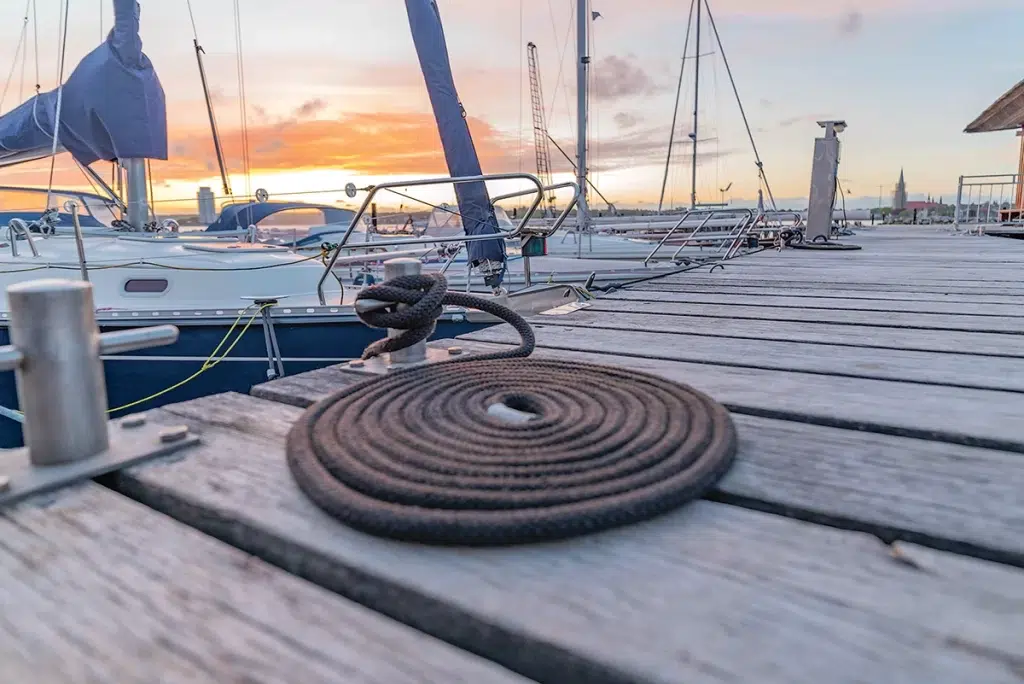
Communicate clearly with marina staff and fellow boaters to avert misunderstandings. If you need assistance or have special requests, make them clear and polite. Report any issues with the marina facilities promptly to the staff.
Marinas are often located near residential areas and natural environments, so keeping noise levels down is crucial. Avoid loud music and disruptive behavior. Dispose of trash properly and manage waste to prevent pollution of marina waters.
Also Read
Volare Artemis23 Sets a New Standard for Electric Performance Boats
A New Vision for Electric Performance Boating “The impetus was to build a different boat,” says Volare COO and co-founder...
Enforcing Etiquette at Marinas
Marina operators should establish clear etiquette guidelines and share them with boaters. This could include rules about noise levels, waste disposal, and respectful behavior. Clear signage and written policies help set expectations and promote compliance.
They should educate boaters and marina staff about proper etiquette and safety practices. Regular workshops or informational sessions can help reinforce these principles and address common issues. Providing training for marina staff on how to handle etiquette violations can also be beneficial.
Another way to enforce guidelines is to create a system for reporting violations of marina etiquette. This could involve a simple form or an online platform where boaters can report issues such as noise complaints or improper waste disposal. Ensuring that these reports are reviewed and acted upon promptly helps maintain a respectful environment.

Marina operators should encourage good behavior by acknowledging and rewarding boaters who consistently follow boating etiquette guidelines. Positive reinforcement, such as public recognition or small rewards, can motivate others to adhere to marina rules.
When violations occur, marina staff should enforce rules consistently and fairly. Address issues calmly and professionally, providing clear explanations of why certain behaviors are unacceptable. Offering solutions or alternatives can help resolve conflicts amicably.
Staff can promote a sense of community among boaters by organizing events or gatherings that emphasize camaraderie and shared values. Building a strong, respectful community can naturally encourage better behavior and adherence to etiquette.
Also Read
Marina operators should encourage good behavior by acknowledging and rewarding boaters who consistently follow etiquette guidelines. Positive reinforcement, such as public recognition or small rewards, can motivate others to adhere to marina rules.
When violations occur, marina staff should enforce rules consistently and fairly. Address issues calmly and professionally, providing clear explanations of why certain behaviors are unacceptable. Offering solutions or alternatives can help resolve conflicts amicably.
Staff can promote a sense of community among boaters by organizing events or gatherings that emphasize camaraderie and shared values. Building a strong, respectful community can naturally encourage better behavior and adherence to etiquette.
Worker Etiquette: Maintaining a Professional Environment on Your Boat
Ensure that workers or service personnel on your boat wear appropriate attire for their tasks. This may include protective clothing and non-marking footwear to prevent damage to the boat. If they are handling materials that could cause messes, such as paint or chemicals, they should use protective coverings like gloves, masks, and aprons.

To keep your boat in pristine condition, workers should place plastic coverings or drop cloths on surfaces that might be exposed to dirt or debris. This helps prevent scratches, stains, and general wear and tear on the boat’s interior. Be sure that any materials or equipment used on board are clean and in good condition to avoid accidental damage.
Workers should strive to complete their tasks efficiently and with minimal disruption. They should be mindful of noise levels, avoid creating clutter, and handle personal items on the boat with care. Clear communication about the scope and duration of their work can help manage expectations and reduce inconvenience.
Worker safety is essential. Make sure that workers are aware of any specific safety procedures related to your boat and that their activities do not create hazards. After completing their tasks, workers should conduct a thorough cleanup, removing any waste and leaving the boat in the same condition as before their work began.
Boating offers a wonderful opportunity for relaxation and adventure, but it comes with the responsibility of ensuring safety and maintaining good etiquette. Whether you’re maneuvering through busy marina docks or overseeing work on your vessel, remember that boating is as much about community and consideration as it is about exploration and fun. The next time you head out, keep these guidelines in mind to ensure a smooth and enjoyable cruising experience.
-by Bonnie Schultz




